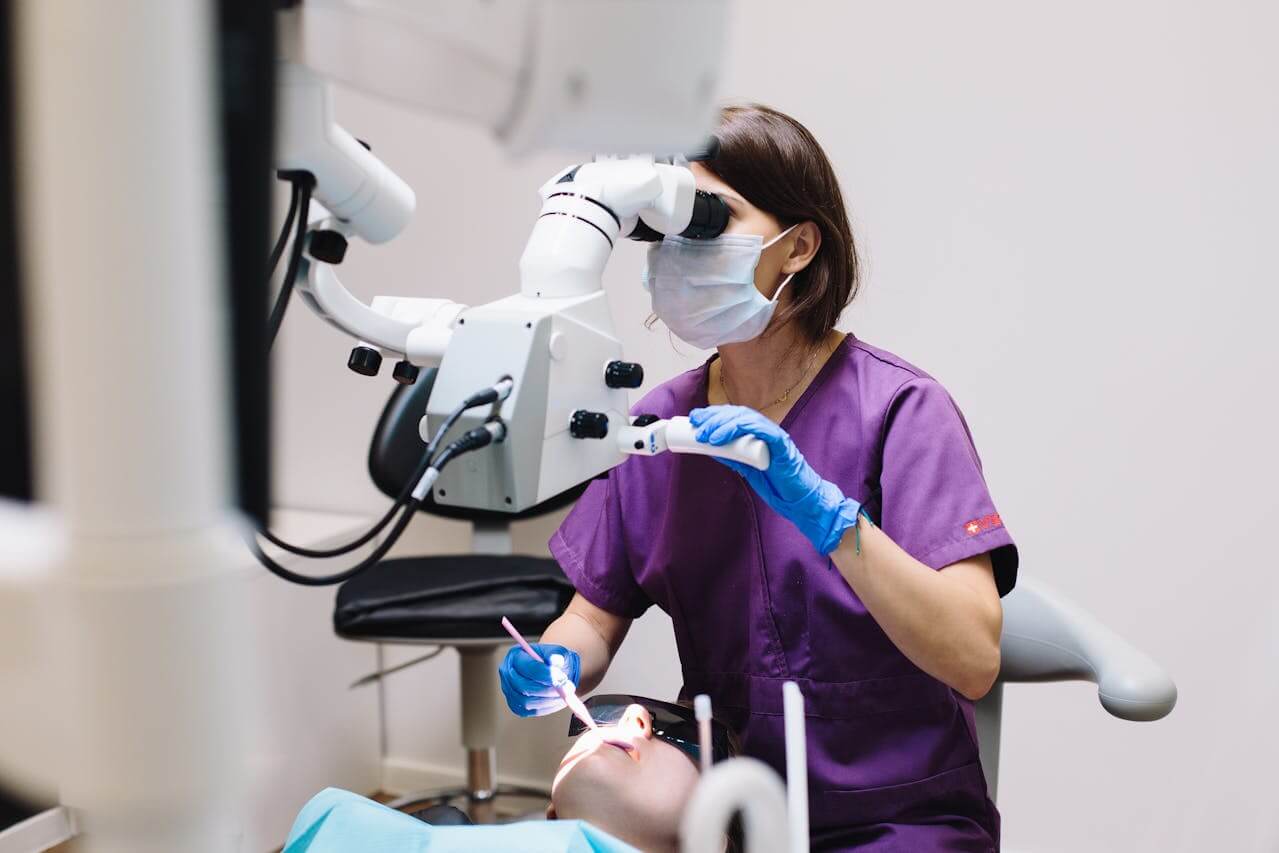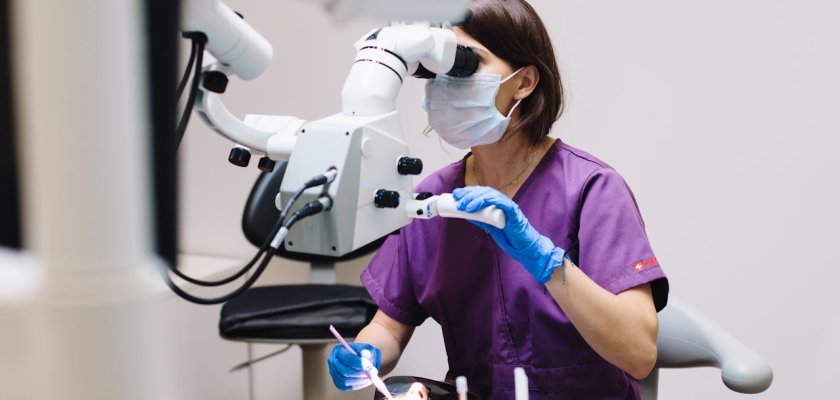Tooth pain when biting down can be a distressing experience, affecting not only your dental health but also your overall well-being. This discomfort can vary from mild to extreme, with some individuals even reporting that the pain is so severe that it interferes with their sleep. In this comprehensive guide, we will delve into the causes of tooth pain when biting down and explore effective solutions to alleviate this discomfort.

Causes of Tooth Pain When Biting Down:
Dental Cavities:
One of the primary culprits of tooth pain is dental cavities. Cavities, also known as caries, are decayed areas in the teeth caused by the breakdown of enamel. When cavities develop in a tooth’s surface, biting down can exert pressure on the affected area, leading to pain and discomfort.
Cracked or Fractured Teeth:
Cracks or fractures in the teeth can occur due to various reasons, such as trauma, teeth grinding (bruxism), or chewing on hard objects. When you bite down, the pressure can exacerbate these cracks, causing sharp pain. In some cases, the pain may be intermittent, making it challenging to pinpoint the cause.
Gum Disease:
Periodontal or gum disease can lead to inflammation and infection of the gums. When the gums are compromised, the teeth may become sensitive and painful when pressure is applied during biting. Advanced stages of gum disease can also result in the recession of the gums, exposing the tooth roots and intensifying the pain.
Misaligned Teeth:
Teeth that are not properly aligned may experience uneven pressure during biting. This can lead to localized pain when specific teeth bear more force than others. Orthodontic issues, such as malocclusion or a misaligned bite, may contribute to discomfort during biting.
Dental Abscess:
A dental abscess is a pocket of pus that forms due to a bacterial infection. When an abscess develops at the root of a tooth, it can cause intense pain, especially when pressure is applied during biting. The pain may be accompanied by swelling, redness, and sometimes even a bad taste in the mouth.
Temporomandibular Joint (TMJ) Disorders:
The TMJ is the joint that connects the jaw to the skull, allowing for movements like chewing and talking. Disorders affecting the TMJ, such as temporomandibular joint dysfunction (TMD), can result in pain during biting. TMJ-related pain may extend beyond the teeth to include the jaw and surrounding areas.
Solutions for Tooth Pain When Biting Down:
Visit Your Dentist:
If you’re experiencing tooth pain when biting down, the first and most crucial step is to schedule an appointment with your dentist. A professional examination, along with X-rays, can help identify the underlying cause of the pain. Your dentist will tailor a treatment plan based on the specific issue, which may include procedures like dental fillings, root canal therapy, or tooth extraction.
Address Cavities Promptly:
If cavities are identified as the cause, prompt treatment is essential. Dental fillings are commonly used to repair cavities and restore the affected teeth. In cases where the decay has reached the tooth’s pulp, a root canal procedure may be recommended to remove the infected tissue and alleviate pain.
Manage Cracked or Fractured Teeth:
Treatment for cracked or fractured teeth depends on the severity of the damage. Minor cracks may be addressed with dental bonding or crowns, while more extensive fractures may require root canal therapy or even tooth extraction. Seeking professional dental advice is crucial to prevent further damage.
Combat Gum Disease:
For gum disease, treatment involves professional dental cleanings, scaling and root planing, and in severe cases, surgery. Good oral hygiene practices, including regular brushing, flossing, and professional cleanings, can help prevent and manage gum disease.
Orthodontic Solutions:
If misaligned teeth contribute to the pain, orthodontic interventions may be recommended. Braces, aligners, or other orthodontic appliances can help correct misalignments, ensuring that pressure is distributed evenly during biting.
Address Dental Abscess:
Dental abscesses often require drainage and antibiotic treatment to eliminate the infection. In some cases, a root canal may be necessary to remove the infected pulp. Seeking immediate dental attention is crucial to prevent the spread of the infection and alleviate pain.
TMJ Disorder Management:
Managing TMJ disorders involves a combination of conservative measures and, in some cases, dental appliances. Your dentist may recommend lifestyle changes, jaw exercises, or the use of a bite splint to alleviate TMJ-related pain.
Over-the-Counter Pain Relief:
In the interim, over-the-counter pain relievers such as ibuprofen or acetaminophen can help manage tooth pain. However, these should be used as a temporary solution, and consulting with a dentist for a proper diagnosis and treatment plan is essential.
Warm Compress and Relaxation Techniques:
Applying a warm compress to the affected jaw area can help alleviate muscle tension and reduce pain. Incorporating relaxation techniques, such as deep breathing exercises, may also be beneficial for managing TMJ-related pain.
Dealing with Extreme Tooth Pain That Affects Sleep:
If you are experiencing extreme tooth pain that interferes with your ability to sleep, it is crucial to address the issue promptly. In addition to the solutions mentioned above, consider the following:
Elevate Your Head While Sleeping:
Prop yourself up with an extra pillow to elevate your head while sleeping. This can help reduce blood flow to the affected area, potentially alleviating some of the pain.
Avoid Trigger Foods:
Steer clear of hot or cold foods, as extreme temperatures can exacerbate tooth sensitivity and pain. Opt for softer foods that require less chewing until you can seek professional dental care.
Practice Good Sleep Hygiene:
Maintain a regular sleep schedule and create a conducive sleep environment. Minimize screen time before bed, keep the room dark and quiet, and ensure your mattress and pillows provide adequate support.
Consult with an Emergency Dentist:
If the pain is severe and persistent, consider consulting with an emergency dentist. Some dental offices offer after-hours or emergency services to address urgent dental issues.
Use Over-the-Counter Oral Gels:
Over-the-counter oral gels containing numbing agents like benzocaine can provide temporary relief from extreme tooth pain. However, these should be used under the guidance of a healthcare professional.
Conclusion:
Tooth pain when biting down is a symptom that should not be ignored. Identifying the underlying cause through professional dental evaluation is crucial for effective treatment. Whether the pain is due to cavities, fractures, gum disease, or other dental issues, prompt intervention can alleviate discomfort and prevent further complications. If extreme tooth pain is affecting your ability to sleep, seek immediate attention from a dentist or emergency dental services to address the issue and restore your oral health. Remember, maintaining regular dental check-ups and practicing good oral hygiene are essential for preventing tooth pain and ensuring a healthy smile.

